Recent Award Winners
The Royal Society of New South Wales has long recognised distinguished achievements in various fields of knowledge through its Awards. Some are amongst the oldest in Australia while others are more recent. In 2023, the Society broadened and streamlined its Awards portfolio to recognise recent and evolving fields and disciplines, and emerging as well as established research stars. Since then, the Society Awards are made in two main classes reflecting the Society’s history: Career Excellence Medals and Discipline Awards and Medals; with additional Awards, Scholarships, and Citations, including Internal Awards for distinguished service to the Society and community.
Winners from past years are listed on the Past Awards page of this website.
Awards Winners 2024
The Awards for 2024 were announced by the President of the Society, Dr Susan Pond AM FRSN, at the 1328th Ordinary General Meeting of the Society, held on Wednesday, 4 December 2024.
Listed below are the winners with links to information about the awards and the recipients.
RSNSW Career Excellence Awards
RSNSW James Cook Medal — Scientia Professor George Paxinos AO DistFRSN FAA FASSA FAHMS
RSNSW Edgeworth David Medal — Professor Yansong Shen
RSNSW Aboriginal or Torres Strait Islander Scholar Medal — Professor Jason Sharples FRSN FTSE
RSNSW Ida Browne Early Career Medal — Dr Xuan Li
RSNSW Discipline Awards and Lectureships
RSNSW Pollock Award and Lectureship in the Physical Sciences and Mathematics — Professor Nalini Joshi AO FRSN FAA FAustMS
RSNSW Poggendorff Award and Lecture in Agricultural and Environmental Science — Professor Alexander McBratney AO FAA
RSNSW Award in the Humanities, Philosophy, and Law — Scientia Professor Jane McAdam AO FASSA FAAL
RSNSW Milner Interdisciplinary Award — Professor Katherine Boydell FASSA
RSNSW Scholarships, Early Career, and Student Awards
RSNSW Bicentennial Postgraduate Scholarships
—Mr Muyang Li (University of Sydney)
—Mr Joel Sved (University of Sydney)
—Ms Linqing Tian (UNSW Sydney)
RSNSW Bicentennial Early Career Research and Service Citations
—Dr Fei Deng (UNSW Sydney)
—Dr Jennifer Matthews (University of Technology Sydney)
—Dr Cynthia Turnbull (Australian National University)
RSNSW Jak Kelly Award
—Mr David Sweeney (University of Sydney)
RSNSW Service Awards
RSNSW Medal — Emeritus Scientia Professor Eugenie Lumbers AM DistFRSN FAA
RSNSW Citation — Ms C. Hannah Hibbert
RSNSW James Cook Medal
Scientia Professor George Paxinos AO DistFRSN FAA FASSA FAHMS
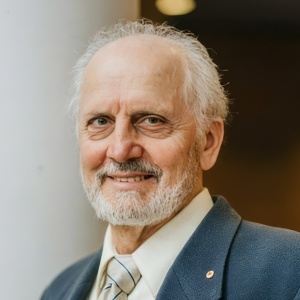 The James Cook Medal is awarded for the most meritorious lifetime contributions to knowledge and society in Australia or its territories made by an individual and conducted mainly in New South Wales. The recipient may be resident in Australia or elsewhere. The James Cook Medal was established by the Council in 1943 following a donation made by Henry Ferdinand Halloran to celebrate his 50 years as a member of the Society and it has been awarded periodically since 1947. In 2023, the Council determined to award it annually.
The James Cook Medal is awarded for the most meritorious lifetime contributions to knowledge and society in Australia or its territories made by an individual and conducted mainly in New South Wales. The recipient may be resident in Australia or elsewhere. The James Cook Medal was established by the Council in 1943 following a donation made by Henry Ferdinand Halloran to celebrate his 50 years as a member of the Society and it has been awarded periodically since 1947. In 2023, the Council determined to award it annually.
George Paxinos, an NHMRC Senior Principal Research Scientist with Neura and a Conjoint Scientia Professor of the UNSW School of Medical Sciences, is a visionary of neuroscience and the world’s leading brain cartographer. He has published 59 books, with his first book being the most highly cited Australian publication of all time. His stereotaxic atlases of the brain and spinal cord of humans, rats, mice and monkeys have proven critical in facilitating research into the relationship between the human brain and neurologic or psychiatric disease, as well as animal models of these diseases, and assisting the development of psychotherapeutic drugs and accurate interventions in the human brain. His eminent lifetime contributions to neuroscience make him an exceptional James Cook Medal winner.
RSNSW Edgeworth David Medal
Professor Yansong Shen
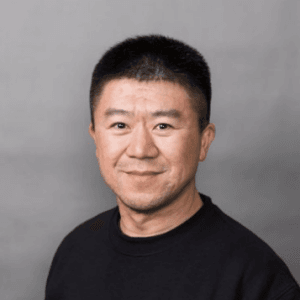 The Edgeworth David Medal is awarded for the most meritorious contributions to knowledge and society in Australia or its territories, conducted mainly in New South Wales by an individual who is from 5–15 years post-PhD or equivalent on 1 January of the year of the award. The recipient may be resident in Australia or elsewhere. The Edgeworth David Medal was established by the Council in 1943 in honour of Sir T. W. Edgeworth David FRS, who compiled the first comprehensive record of the geology of Australia, and following a donation made by Henry Ferdinand Halloran to celebrate his 50 years as a member of the Society. It has been periodically awarded since 1948 and in 2023, the Council determined to award it annually.
The Edgeworth David Medal is awarded for the most meritorious contributions to knowledge and society in Australia or its territories, conducted mainly in New South Wales by an individual who is from 5–15 years post-PhD or equivalent on 1 January of the year of the award. The recipient may be resident in Australia or elsewhere. The Edgeworth David Medal was established by the Council in 1943 in honour of Sir T. W. Edgeworth David FRS, who compiled the first comprehensive record of the geology of Australia, and following a donation made by Henry Ferdinand Halloran to celebrate his 50 years as a member of the Society. It has been periodically awarded since 1948 and in 2023, the Council determined to award it annually.
Yansong Shen, an ARC Future Fellow from the UNSW Sydney School of Chemical Engineering, is the Director of the PROMO laboratory which undertakes research into the process modelling and optimisation of reacting flows, with applications in the resource and energy sector. The mass deployment of photovoltaic solar panels plays a vital role in Australia’s meeting of Net Zero 2050 Targets. Importantly, at their end-of-life, these panels must be recycled to enable genuine life-cycle Net-Zero and to meet Australia’s Waste Action Plan. Unfortunately, current photovoltaic solar panel recycling consists of simply stripping the aluminium frames and sending the rest to landfill. In an Australian first, and inspired by metallurgy engineering, Professor Yansong Shen has developed a sustainable, full-loop system for end-of-life solar panels. This environmentally friendly recycling process not only diverts waste from landfills but also provides materials for new solar panel manufacturing.
RSNSW Aboriginal or Torres Strait Islander Scholar Medal
Professor Jason Sharples FRSN FTSE
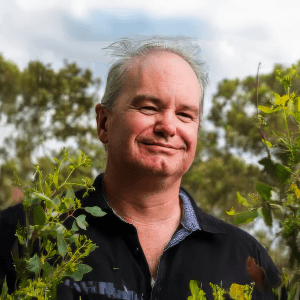 The Aboriginal and/or Torres Strait Islander Scholars Medal is awarded for the sustained, meritorious contributions to knowledge and society made by scholars identifying as Australian Aboriginal or Torres Strait Islander and conducted mainly in New South Wales. Recipients may be resident in Australia or elsewhere. The Aboriginal and/or Torres Strait Islander Scholars Medal was established by the Council in 2023 to reflect the full scope of the Society’s values.
The Aboriginal and/or Torres Strait Islander Scholars Medal is awarded for the sustained, meritorious contributions to knowledge and society made by scholars identifying as Australian Aboriginal or Torres Strait Islander and conducted mainly in New South Wales. Recipients may be resident in Australia or elsewhere. The Aboriginal and/or Torres Strait Islander Scholars Medal was established by the Council in 2023 to reflect the full scope of the Society’s values.
Jason Sharples, of UNSW Canberra, is renowned as one of the world’s leading experts in wildfire science. A proud Wahlabul Bundjalung man, he has made outstanding research contributions that have substantively improved our understanding of fire weather, fuel moisture modelling, wildfire risk assessment, firefighter safety, dynamic fire behaviour, fire-atmosphere interactions, and extreme wildfire development. His paradigm-shifting contributions are widely acknowledged as leading international thought on how the problem of wildfires should be approached around the world, and under his leadership, the Bushfire Research Group at UNSW has emerged as a global leader in the interdisciplinary field of wildfire science.
RSNSW Ida Browne Early Career Medal
Dr Xuan Li
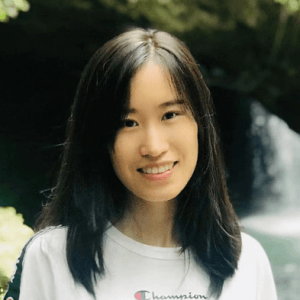 The Ida Browne Early Career Award recognises the most meritorious contributions to knowledge and society in Australia or its territories by an individual from 0–5 years post-PhD or equivalent on 1 January of the year of the award and conducted mainly in New South Wales. The recipient may be resident in Australia or elsewhere. The Ida Browne Medal was established by the Council in 2023 in honour of Ida Browne DSc, a palaeontologist and the first woman President of the Royal Society of NSW, serving from 1953–1954.
The Ida Browne Early Career Award recognises the most meritorious contributions to knowledge and society in Australia or its territories by an individual from 0–5 years post-PhD or equivalent on 1 January of the year of the award and conducted mainly in New South Wales. The recipient may be resident in Australia or elsewhere. The Ida Browne Medal was established by the Council in 2023 in honour of Ida Browne DSc, a palaeontologist and the first woman President of the Royal Society of NSW, serving from 1953–1954.
Xuan Li, an ARC DECRA Fellow, Lecturer, and Chancellor’s Research Fellow in the Centre for Technology and Wastewater at the University of Technology Sydney, is a leading figure in environmental engineering, renowned for her innovative work in corrosion mitigation, wastewater-based infectious disease surveillance, and energy-efficient wastewater treatment. Her corrosion-resistant concrete extends sewer lifespan by 40%, reducing costs and maintenance needs, while delivering substantial economic and environmental benefits. She was an early contributor to wastewater-based COVID-19 surveillance, demonstrating its reliability and establishing the first accurate predictive system for infection and hospitalisation numbers, surpassing existing models in lead time and precision. Additionally, she has pioneered waste-driven technologies that enhance energy recovery in wastewater treatment, significantly benefiting water utilities.
RSNSW Pollock Award and Lectureship in the Physical Sciences and Mathematics
Professor Nalini Joshi AO FRSN FAA FAustMS
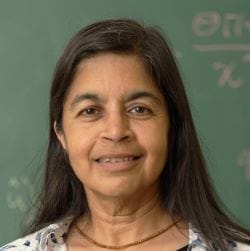 The Pollock Award and Lectureship is awarded for distinguished research in any area of the Physical Sciences and Mathematics, excluding the Chemical and Earth Sciences, conducted mainly in New South Wales. Recipients may be resident in Australia or elsewhere. The Pollock Memorial Lectureship was first awarded in 1949, sponsored by the University of Sydney and the Society, in memory of J.A. Pollock, Professor of Physics at the University of Sydney (1899 – 1922) and a member of the Society for 35 years. In 2023, the Council designated it the Royal Society of NSW Pollock Award the Lectureship.
The Pollock Award and Lectureship is awarded for distinguished research in any area of the Physical Sciences and Mathematics, excluding the Chemical and Earth Sciences, conducted mainly in New South Wales. Recipients may be resident in Australia or elsewhere. The Pollock Memorial Lectureship was first awarded in 1949, sponsored by the University of Sydney and the Society, in memory of J.A. Pollock, Professor of Physics at the University of Sydney (1899 – 1922) and a member of the Society for 35 years. In 2023, the Council designated it the Royal Society of NSW Pollock Award the Lectureship.
Nalini Joshi, from the University of Sydney School of Mathematics, has made groundbreaking contributions to the mathematical modelling of nonlinear systems; particularly, innovative methods involving transcendental functions and Painlevé equations. Her research clarifies complex behaviours across various scales, significantly impacting fluid dynamics, nonlinear optics, and lattice theory. Recognised nationally and internationally, she is an Officer of the Order of Australia and has received multiple prestigious awards, including the George Szekeres Medal. She has supervised 18 PhD students and guided over 30 early career researchers from across the world, earning the Eureka Prize for her commitment to mentoring. Joshi also founded the SAGE initiative, promoting gender diversity in STEM fields.
RSNSW Poggendorff Award and Lectureship in Agricultural and Environmental Science
Professor Alexander McBratney AO FAA
 The Poggendorff Award recognises distinguished research in any area of the Agricultural and Environmental Sciences, conducted mainly in New South Wales. Recipients may be resident in Australia or elsewhere. The Poggendorff Award and Lectureship honours Walter Poggendorff, an eminent biologist and noted plant breeder in the 1930s and 40s, and his bequest to the Society to support a Lectureship. It was first awarded in 1987 and in 2023 Council designated it the Royal Society of NSW Poggendorff Award and Lectureship.
The Poggendorff Award recognises distinguished research in any area of the Agricultural and Environmental Sciences, conducted mainly in New South Wales. Recipients may be resident in Australia or elsewhere. The Poggendorff Award and Lectureship honours Walter Poggendorff, an eminent biologist and noted plant breeder in the 1930s and 40s, and his bequest to the Society to support a Lectureship. It was first awarded in 1987 and in 2023 Council designated it the Royal Society of NSW Poggendorff Award and Lectureship.
Alex McBratney, Director of the Sydney Institute of Agriculture at the University of Sydney, undertakes pioneering work in precision agriculture and digital soil mapping which has revolutionised soil science and agricultural practices, enhancing Australian agricultural productivity by at least $60 million annually and reducing environmental impact. His revolutionary theories and models have transformed access to soil information for farmers which, in turn, informs advances in sustainable farming practices. Global uptake of his digital tools and training programs have strengthened soil care and fostered AgTech businesses worldwide. His contributions address soil erosion, salinisation, and acidification, improving food security and biodiversity while influencing international soil security policies.
RSNSW Award in the Humanities, Philosophy and Law
Scientia Professor Jane McAdam AO FASSA FAAL
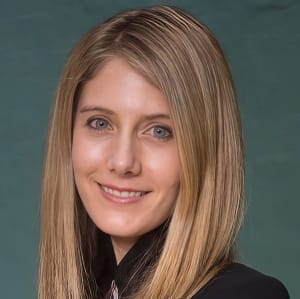 This award recognises distinguished research in any area of the Humanities, Philosophy and Law (excluding the History and Philosophy of Science for which there is a separate award), conducted mainly in New South Wales. Recipients may be resident in Australia or elsewhere. This Award was established by the RSNSW Council in 2023 to reflect the full scope of the Society’s founding values.
This award recognises distinguished research in any area of the Humanities, Philosophy and Law (excluding the History and Philosophy of Science for which there is a separate award), conducted mainly in New South Wales. Recipients may be resident in Australia or elsewhere. This Award was established by the RSNSW Council in 2023 to reflect the full scope of the Society’s founding values.
Displacement remains one of the biggest human rights challenges of our time. As contemporary crises intersect and compound, record numbers of people are fleeing from the harmful impacts of disasters, climate change, armed conflict, persecution and human rights violations. With strong leadership, strategic partnerships and solutions-oriented thinking, much can be done to alleviate displacement and its human costs. Jane McAdam is at the forefront of such thinking. Her pioneering research on climate mobility is directly influencing legal and policy frameworks worldwide, making a real difference for people on the ground. She works with governments, international organisations, civil society and affected communities to develop sustainable, dignified solutions.
RSNSW Milner Interdisciplinary Award
Professor Katherine Boydell FASSA
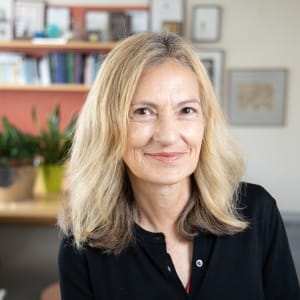 This Award recognises distinguished research that spans disciplines, conducted mainly in New South Wales. Recipients may be resident in Australia or elsewhere. The RSNSW Milner Interdisciplinary Award honours the life and work of C.J. Milner (1912-1998), Professor of Applied Physics and Optometry at the University of New South Wales (1952-1978), and of his parents, S.R. Milner FRS (1875-1957) and W.E. Milner MSc (1874-1966), 1851 Exhibitioners at Bristol College, University of London. Council established this Award in 2023 to reflect the full scope of the Society’s founding values with generous support from Dr Jessica Milner Davis FRSN.
This Award recognises distinguished research that spans disciplines, conducted mainly in New South Wales. Recipients may be resident in Australia or elsewhere. The RSNSW Milner Interdisciplinary Award honours the life and work of C.J. Milner (1912-1998), Professor of Applied Physics and Optometry at the University of New South Wales (1952-1978), and of his parents, S.R. Milner FRS (1875-1957) and W.E. Milner MSc (1874-1966), 1851 Exhibitioners at Bristol College, University of London. Council established this Award in 2023 to reflect the full scope of the Society’s founding values with generous support from Dr Jessica Milner Davis FRSN.
Katherine Boydell, from the Black Dog Institute and the UNSW Sydney Faculty of Medicine and Health, is an internationally recognised leader in qualitative inquiry and arts-based knowledge translation in mental health and social care. She has a long-standing, successful history in the development of innovative methodological approaches to create knowledge and translate empirical research using arts-based methods. As the founder and lead of the award-winning Arts-based Knowledge Translation Lab, she has developed a coordinated strategy to transform consumer participation in mental health research, drawing on the arts to communicate public awareness of mental health, decreasing stigma, expanding the research base and creating global partnerships in innovative, whole-of-community approaches to mental health and well-being.
RSNSW Bicentennial Postgraduate Scholarships
The RSNSW Bicentennial Postgraduate Scholarships are awarded each year to recognise outstanding achievements by young researchers in any academic field. The awards are made primarily on the basis of an academic paper that is published by a higher degree research student, enrolled at a university in NSW or the ACT. The paper must have been published in final form (electronic or paper form) after 1 July in the preceding year. The student must have been enrolled as a higher degree student at the time of the initial submission to the journal in which the paper appeared.
For 2024, three RSNSW Scholarships have been awarded.
- Mr Muyang Li — PhD Candidate in computer science, University of Sydney
- Mr Joel Sved — PhD Candidate in photonics, University of Sydney
- Ms Linqing Tian — PhD candidate in chemistry, UNSW Sydney

Mr Muyang Li is currently a second-year PhD student at the University of Sydney and the Sydney AI Centre. He joined the PhD program following the completion of his BSc (Hons) with first-class honours at the same institution, and a BSc at the University of Auckland. Muyang’s research concentrates on improving machine learning models under weak supervision. His recent research showcases how to design instance-dependent thresholds for Semi-supervised Learning, which offers flexible and robust data-selection methodology, and paves the way for reliable machine learning algorithms with high annotation efficiency.
Muyang has published nine peer-reviewed articles in leading conferences and journals. His work has been recognised through several honours, including the Google Award for best poster in AI/ML from the University of Sydney and Google, the outstanding reviewer award from ICLR 2024, and the finalist in the renowned Data Science PhD fellowship from Bloomberg.
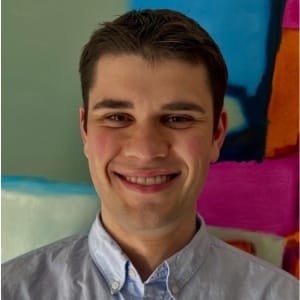 Mr Joel Sved is a second-year PhD student in the School of Electrical and Computer Engineering at the University of Sydney, having previously completed a BE (Hons 1) in 2022, also at the University of Sydney. His PhD studies are in the field of photonics, with a thesis titled ‘On-chip Neural Networks based on Integrated Photonics’.
Mr Joel Sved is a second-year PhD student in the School of Electrical and Computer Engineering at the University of Sydney, having previously completed a BE (Hons 1) in 2022, also at the University of Sydney. His PhD studies are in the field of photonics, with a thesis titled ‘On-chip Neural Networks based on Integrated Photonics’.
His scholarship has been awarded on the basis of his paper, J. Sved, S. Song, Y. Chen, L. Zhou, R. Minasian, and X. Yi, Machine Learning Assisted Two-Dimensional Beam-Steering for Integrated Optical Phased Arrays (Optics Communications, 540, 2023), which introduces the first machine learning-assisted method for achieving high-precision 2D beam-steering in optical phased arrays. This ground-breaking approach, designed to overcome fabrication imperfections, thermal crosstalk, and ambient temperature variations, was experimentally validated on a silicon-on-insulator (SOI) platform. The technique demonstrates significant potential for a wide range of applications, including LiDAR, imaging and sensing systems, free-space optical communications, as well as augmented and virtual reality technologies.
 Ms Linqing Tian is a third-year PhD student in the School of Chemistry at UNSW Sydney, having previously completed a Master of Environmental Engineering in 2021 at Tsinghua University, and a Bachelor of Water Supply and Drainage Engineering at Zhengzhou University in 2018.
Ms Linqing Tian is a third-year PhD student in the School of Chemistry at UNSW Sydney, having previously completed a Master of Environmental Engineering in 2021 at Tsinghua University, and a Bachelor of Water Supply and Drainage Engineering at Zhengzhou University in 2018.
Leveraging her extensive expertise in polymer science and computational modelling alongside her innovative approach to nanomedicine, Linqing Tian developed a novel drug delivery system that enhances the delivery of therapeutic drugs without relying on organic solvents. This sustainable system, which uses sugars and amino acids, allows for the formation of nanomedicine in an aqueous environment. It streamlines the process by eliminating the need for multiple steps and enables precise control over nanoparticle size by adjusting the quantity of the added drug. Versatile and easy to adapt, this system is suitable for a wide range of therapeutic drugs.
RSNSW Bicentennial Early Career Research and Service Citations
The RSNSW Bicentennial Early Career Research and Service Citations are awarded each year to recognise outstanding contributions to research and service to the academic and wider community. Applicants must on 1 January of the year of nomination be no more than 5 years after the award of their PhD or equivalent by a university or other research institution in NSW or the ACT.
For 2024, three RSNSW Early Career Citations have been awarded.
- Dr Fei Deng — Graduate School of Biomedical Engineering, UNSW Sydney
- Dr Jen Matthews — Climate Change Cluster, University of Technology Sydney
- Dr Cynthia Turnbull — John Curtin School of Medical Research, Australian National University
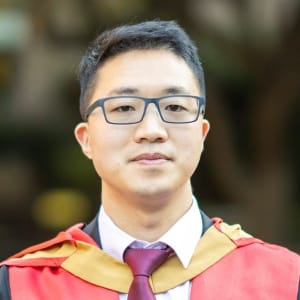 Dr Fei Deng is currently an Early Career Fellow of the Cancer Institute NSW, having received his PhD degree (Biomedical Engineering) in 2021 from the UNSW Sydney Graduate School of Biomedical Engineering.
Dr Fei Deng is currently an Early Career Fellow of the Cancer Institute NSW, having received his PhD degree (Biomedical Engineering) in 2021 from the UNSW Sydney Graduate School of Biomedical Engineering.
His research interests include point-of-care biosensing devices, CRISPR biosensing devices, and in vivo biosensing devices. Dr Deng has published over 40 articles in high-impact journals that include Nature Communications and Advanced Functional Materials. In addition, he has secured, either individually or as a chief investigator in a larger team, over $11M in research grants from sources that include Australia’s Economic Accelerator, CRC Projects, NHMRC, and the ARC. His biosensor research has been well recognised by industry, leading to a startup company (Casbio) of which he is a co-founder, and as a research consultant to Avicena Systems.
 Dr Jennifer Matthews is a Lecturer and Chancellor’s Research Fellow in the Climate Change Cluster research institute at the University of Technology Sydney. She graduated with a PhD in marine biology from the Victoria University of Wellington NZ in 2021 and holds a research Masters in ecology, evolution and conservations from Imperial College London, and a BSc (Hons) in biology from the University of Bath.
Dr Jennifer Matthews is a Lecturer and Chancellor’s Research Fellow in the Climate Change Cluster research institute at the University of Technology Sydney. She graduated with a PhD in marine biology from the Victoria University of Wellington NZ in 2021 and holds a research Masters in ecology, evolution and conservations from Imperial College London, and a BSc (Hons) in biology from the University of Bath.
Currently, Dr. Matthews is the Deputy Team Leader of the UTS Future Reefs Group. Her research has transformed our understanding of coral nutrition and the physiology of corals in NSW, which is vital for local policy. Collaborating with Traditional Owners, she develops practical solutions to coral ecosystem challenges. With more than 50 invited presentations and 17 awards like the 2023 NSW Tall Poppy Award, her global impact is clear. Jen Matthews has published 32 papers (H-index 14) and has secured 13 grants exceeding AU$3.4M. For her commitment to science communication and mentoring, she was recognised in 2021 as one of the Science Technology Australia Superstars of STEM.
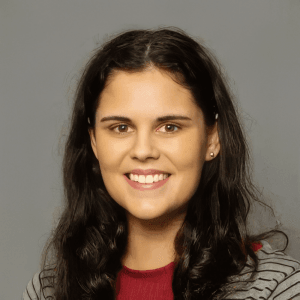 Dr Cynthia Turnbull is a postdoctoral researcher at the John Curtin School of Medical Research (JCSMR) of the Australian National University (ANU). Her PhD (2023) with Professor Carola Vinuesa focused on the role of genetic mutations in severe autoimmune disease. She discovered that the anti-fungal protein DECTIN-1 is a regulator of the immune system and can exacerbate the severity of autoimmune disease.
Dr Cynthia Turnbull is a postdoctoral researcher at the John Curtin School of Medical Research (JCSMR) of the Australian National University (ANU). Her PhD (2023) with Professor Carola Vinuesa focused on the role of genetic mutations in severe autoimmune disease. She discovered that the anti-fungal protein DECTIN-1 is a regulator of the immune system and can exacerbate the severity of autoimmune disease.
Currently, she works in the laboratory of Professor Si Ming Man and studies the role of innate immunity in pro-inflammatory diseases. Her highly collaborative nature and keenness for cross-disciplinary research have resulted in 4 publications in high-impact journals; Nature, Nature Immunology, Science Advances and the Journal of Experimental Medicine, with over 350 citations. Outside of the lab, Cynthia has a passion for teaching and science communication. She has provided guest lectures at ANU, been invited to present at Australian and international research institutes and conferences and has featured in several media articles and radio talk shows.
RSNSW Jak Kelly Award
The RSNSW Jak Kelly Award recognises excellence in postgraduate research in physics annually. The winner is selected from presenters at each year’s Australian Institute of Physics NSW Branch Postgraduate Awards, as advised to the Awards Committee of the Royal Society of NSW. This Award honours the life of Jak Kelly (1928-2012), Professor and Head of Physics at the University of NSW (1985-1989), Honorary Professor at the University of Sydney (2004), and President of the Royal Society of NSW (2005-2006). It was first awarded in 2010.
For 2024, the Jak Kelly Award goes to Mr David Sweeney of the University of Sydney School of Physics.
 Mr David Sweeney is a PhD candidate in the Sydney Institute of Astronomy whose research is focused on the galactic underworld in which massive stars end their lives in fiery supernova, leaving behind neutron stars (NSs) and black holes (BHs). These compact remnants of dead stars – the Galactic Underworld – exhibit a fundamentally different distribution and structure to the visible galaxy. He is highlighting the exciting paths forward. For the first time in human history, uncovering the population of BHs is within reach. David suggests that within the next 10 years, dozens of isolated BHs will be found, increasing exponentially into the future.
Mr David Sweeney is a PhD candidate in the Sydney Institute of Astronomy whose research is focused on the galactic underworld in which massive stars end their lives in fiery supernova, leaving behind neutron stars (NSs) and black holes (BHs). These compact remnants of dead stars – the Galactic Underworld – exhibit a fundamentally different distribution and structure to the visible galaxy. He is highlighting the exciting paths forward. For the first time in human history, uncovering the population of BHs is within reach. David suggests that within the next 10 years, dozens of isolated BHs will be found, increasing exponentially into the future.
RSNSW Service Awards
Royal Society of NSW Medal
Emeritus Scientia Professor Eugenie Lumbers AM DistFRSN FAA
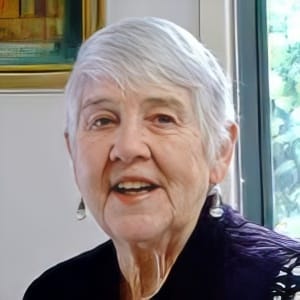 The Royal Society of New South Wales Medal recognises an individual who has made meritorious contributions to the advancement of knowledge in any field and also to the Society’s administration, organisation, and endeavours. The RSNSW Medal was first awarded in 1884, revived in 1943, and has been awarded periodically thereafter.
The Royal Society of New South Wales Medal recognises an individual who has made meritorious contributions to the advancement of knowledge in any field and also to the Society’s administration, organisation, and endeavours. The RSNSW Medal was first awarded in 1884, revived in 1943, and has been awarded periodically thereafter.
Eugenie Lumbers researched and taught physiology and pharmacology at UNSW for 30 years, serving on its Council and becoming Scientia Professor in 2003. She was elected as a Fellow of the Australian Academy of Science in 2002 and received Membership in the Order of Australia in 2012. In 2006 she joined RSNSW, becoming a Fellow in 2010 and a Distinguished Fellow in 2011. A member of the RSNSW Council, she chaired the Society’s Awards Committee at a critical time in 2020 and was the motivating force in the creation of the Hunter Branch of the Society in 2019, serving on its committee ever since.
Royal Society of NSW Citation
Ms C. Hannah Hibbert
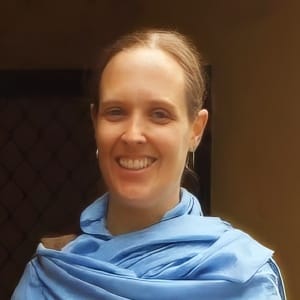 The Royal Society of New South Wales Citations recognise individuals who have made significant contributions to the Society, but who have not been recognised in any other way. The RSNSW Citation was first awarded in 2019.
The Royal Society of New South Wales Citations recognise individuals who have made significant contributions to the Society, but who have not been recognised in any other way. The RSNSW Citation was first awarded in 2019.
Hannah Hibbert is an accomplished archivist with formal credentials and roles as the archivist for the Australian Turf Club and, currently, the Sydney Opera House. She is currently the President of the Australian Society of Archivists.
Serving as the Honorary Archivist for the Royal Society of New South Wales from November 2019 to April 2024, Hannah played a key role in the Society’s bicentenary exhibition and online listing of the Society’s extensive archives. From 2011, Hannah volunteered countless hours investigating and documenting the material held by the Society at 121 Darlington Road, Darlington. This was a challenging task. In 2012, Hannah produced a spreadsheet that identified over 500 records and objects, with an assessment of their condition, significance, and a comprehensive set of notes where appropriate. Hannah continued to develop this over subsequent years in the period leading up to her appointment as Honorary Archivist.